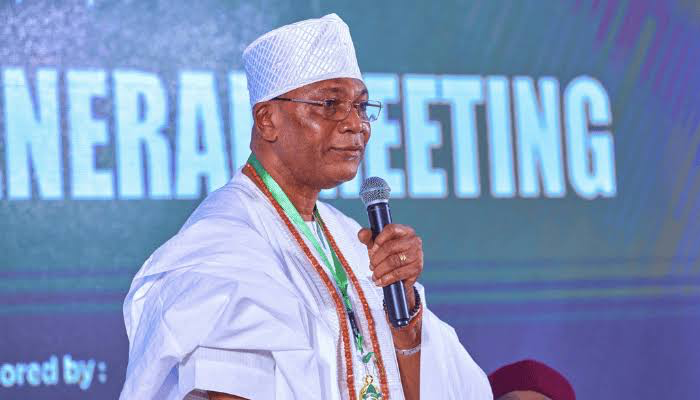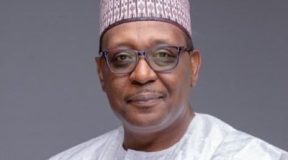President of the MAN, Francis Meshioye, recently said more multinationals would exit Nigeria if electricity hike was implemented.
Despite being the largest economy in Africa with an over 200 million human population with potential to make fortunes, multinational companies are exiting Nigeria because of the high cost of doing business and lack of basic infrastructure, especially electricity.
Experts, who noted that even though the ugly development predated President Bola Tinubu’s government, said it was always good to bring the issue to the front burner, especially now that a new government was being formed for the new leaders to act fast and salvage the situation.
Our correspondent reports that over time the multinational companies have been forced to exit the country as a result of surging inflationary pressure, foreign exchange (forex) volatility, rising interest rates, electricity crisis, among other challenges, which have impacted operating expenses and profitability of businesses.
Procter & Gamble, Surest Foam Limited, Mufex, Framan Industries, Moak Industries, Deli Foods, Stone Industries, MZM Continental and Nipol Industries are among companies that have shut down fully or partially in recent years.
That notwithstanding, other experts have a different perspective as to why foreign companies are leaving Nigeria.
They said sometimes, the decision is based purely on internal company exigencies or market-wide or sectoral global trends in labour or technology.
They said the companies’ exit might be driven by sudden changes like the pandemic or economic downturns, adding that it is possible that as some companies are leaving or closing locally, other companies may be coming in or opening.
They said for example, the fintech sector and the digital economy more broadly have been expanding in the country, saying this could be a substitution situation, whereby the decline of one sector is complemented by the growth of another.
However, since the coming of the Tinubu administration, both the president and some of his aides have been speaking on efforts being put in place towards revamping the economy, encouraging Foreign Direct Investment (FDI) and also making local industries vibrant and competitive.
For instance, about a month ago, the Permanent Secretary, Federal Ministry of Industry, Trade and Investment, Dr Evelyn Ngige, said the launch of Nigeria’s first trade and investment policies would boost the local economy and facilitate increased foreign and domestic trade.
She stated this at the opening of a stakeholders’ workshop on the maiden Nigeria Investment Policy (NINP) and Trade Policy (NTP) in Abuja.
Recall that on May 10, 2023, at the twilight of the former President Muhammadu Buhari administration, the Federal Executive Council (FEC) approved the implementation of the first Nigeria Investment Policy (2023-2027) and the review of the Trade Policy of Nigeria (2023-2027).
Dr Evelyn said both frameworks represented significant milestones in the journey for economic growth and development.
She stressed that the ministry remained committed to improving the domestic investment and business environment in order to position the country as one of the world’s preferred investment destinations.
She pointed out that the development of the first investment policy, as well as the review of the country’s trade policy, was a useful outcome of the sustained efforts of the ministry.
The NINP focuses on three pillars: investment promotion, investment facilitation and sustainable development, with the objective to develop the investment policy framework, especially fast-tracking the process of Nigeria’s economic diversification, improving investment and business climate to attract both domestic and FDI.
And in July this year, the Special Adviser (SA) to the president on revenue, Zacch Adedeji, said the government would streamline its taxes from 52 to 10 in order to promote efficiency and accountability.
He stated this during the virtual TOPAZ 88 second lecture series, which had the title: “Revenue Challenges and Opportunities in Nigeria Today”.
It would also be recalled that the President of the Manufacturers Association of Nigeria (MAN), Francis Meshioye, recently said that more multinationals would exit Nigeria if electricity hike was implemented.
Meshioye, who stated that some international manufacturing firms had already exited Nigeria as a result of the electricity crisis, coupled with the unpredictability of the country’s forex before it was recently unified, added that over N144bn was spent on alternative sources of energy by manufacturers in 2022.
He said, “Now, if you spend N144bn on alternative energy sources in one year, you can only imagine the impact which that will have on your cost of operations. The manufacturing business in Nigeria is affected by so many factors, energy is a major one.
“Manufacturers provide almost every infrastructure by themselves. Outside the major roads, you find out that manufacturers provide water, power, security, etc. So, when you look at it, you find out that the cost of doing business is so huge, that a businessman will ask, ‘Is this the only place I can do my business? Can’t I move my capital elsewhere?



